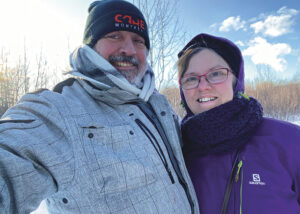I like paying attention to structures and policies. My attention was caught on Sunday when the visiting preacher, Fanosie Legesse of Mennonite Church Eastern Canada, said that wisdom is when churches shape structures and policies to be salt and light in the world. Every board or management team that I have been part of has spent significant time on these topics, because structures and policies always need updates and changes.
Our churches in Canada, at all levels, are quite formally structured. At the local level we have councils, boards, leadership teams, committees, task forces and long “slates” where we elect (or appoint) people into many different congregational roles. This gives us clarity on who makes decisions and who does things. Then we have our regional churches. Then we have our nationwide church, Mennonite Church Canada. And then we have our global church, Mennonite World Conference (MWC). Most of us who are members of a local congregation are automatically members of the others (with some exceptions).
I am intrigued when I hear some people talk about how the wider church is irrelevant to their lives. Their lives are oriented to worship and relationships in their local congregation.
Then I hear other people describe the wider church as more diverse (theologically and culturally), more welcoming, and more life-giving for them than what is possible locally.
And then there are some people who work hard at finding a balance for all parts of church—locally, regionally, nationally and internationally (but then don’t have time for any relationships outside of church).
Over the years I have had a finger or two in all these different “levels” of church. I often hear comments people make about our many levels of church:
- I love going to an MWC assembly. It is the only time I feel that church is truly dynamic and Spirit-filled.
- We’re so thankful that our regional church was there to help us manage our church conflict or the transition between pastors.
- Why do we need a detailed Confession of Faith from our nationwide church? MWC’s Statement of Shared Convictions is all I need and all my congregation needs.
- I don’t know what benefit our congregation gets from our regional church. And we don’t want them telling us what to do.
- I’m so glad we have church structures beyond our local congregation to train, support and strengthen our pastors. They set standards for our pastors, and help us hold our pastors accountable.
- Our local congregation is going through a lot right now—funerals, people leaving, new people coming. Inviting speakers or content from other parts of the church just does not seem to connect with what is happening within our local congregation.
- Being light and salt in the whole world means collaboration with many parts of church beyond my local congregation. I’m so glad my congregation benefits from those relationships.
We’ve all heard the phrase that structures and policies need to serve the people, and not the other way around. How do we adapt and right-size our structures and policies at all levels in order to better be salt and light in our local communities, our country and our world? What could be released from our structures?
As César García from MWC likes to say, “we are a movement not an institution.” I hope so. I pray for wisdom that all parts of church will keep changing in ways that enable the church to better be salt and light in the world.
Arli Klassen is a member of First Mennonite Church, Kitchener, and a staff member of MWC. Earlier this year, she completed terms on the boards of Mennonite Church Eastern Canada and Mennonite Church Canada.







Leave a Reply
You must be logged in to post a comment.